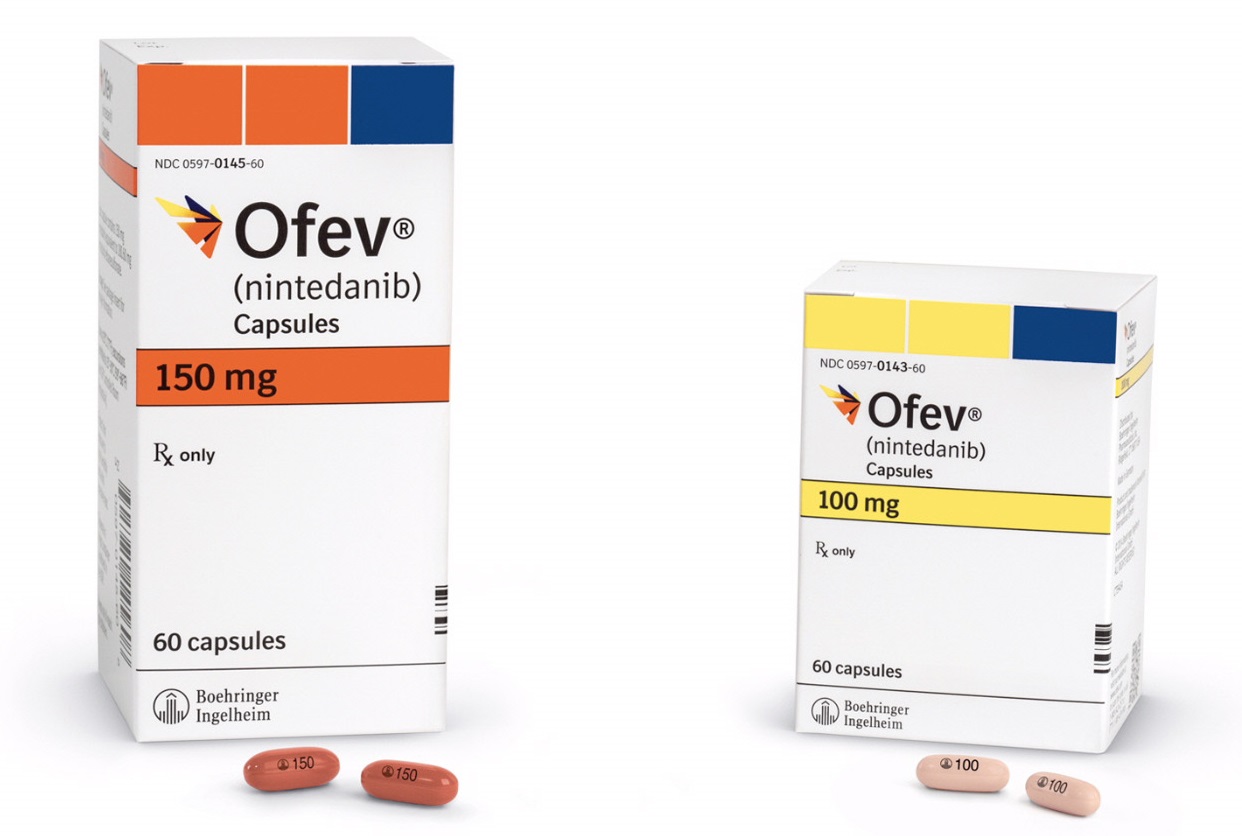The recently published 2015 ATS/ERS/JRS/ALAT Clinical Practice Guideline: Treatment of Idiopathic Pulmonary Fibrosis – An Update of the 2011 Guideline, which recommends using OFEV® (nintedanib) to treat patients diagnosed with idiopathic pulmonary fibrosis (IPF), is being praised by leading pharmaceutical company Boehringer Ingelheim. Nintedanib is a small molecule tyrosine-kinase inhibitor, targeting vascular endothelial growth factor receptor (VEGFR), fibroblast growth factor receptor (FGFR) and platelet derived growth factor receptor (PDGFR) developed by Boehringer.
These internationally-recognized guidelines were formed by a conglomerate of respiratory societies, including the American Thoracic Society (ATS), European Respiratory Society (ERS), Japanese Respiratory Society (JRS) and Latin American Thoracic Association (ALAT), and discusses the benefit of treating IPF patients with OFEV. Evidence has shown it can potentially improve disease progression as measured by rate of FVC decline and mortality. The guidelines also cover possible adverse effects and each patient’s cost of estimated treatment.
“These guidelines, which update the 2011 iteration, focus on evaluation of clinical trial data in an effort to give healthcare providers an evidence-based set of recommendations for the treatment of IPF,” said Imre Noth, M.D., Professor of Medicine and Director of the Interstitial Lung Disease Program at The University of Chicago. “Our priority is to provide quality care for patients living with this devastating disease. These new guidelines help to outline the role of OFEV in the treatment of IPF.”
“Until last year, treatment options for patients with IPF were limited. These updated international guidelines mark an important milestone in the care of IPF patients, and we’re very pleased that OFEV is included as a recommended treatment option for this devastating disease,” said Danny McBryan, M.D., vice president, Clinical Development and Medical Affairs, Respiratory, Boehringer Ingelheim Pharmaceuticals, Inc.
The group regularly reviews evidence as they are published. The last update made to these guidelines was published in 2011, and included OFEV findings from a pair of replicate Phase III clinical studies (INPULSIS®-1 and INPULSIS®-2) that involved over 1,000 patients across 24 countries, and a Phase II trial (TOMORROW™) that involved 432 patients.

